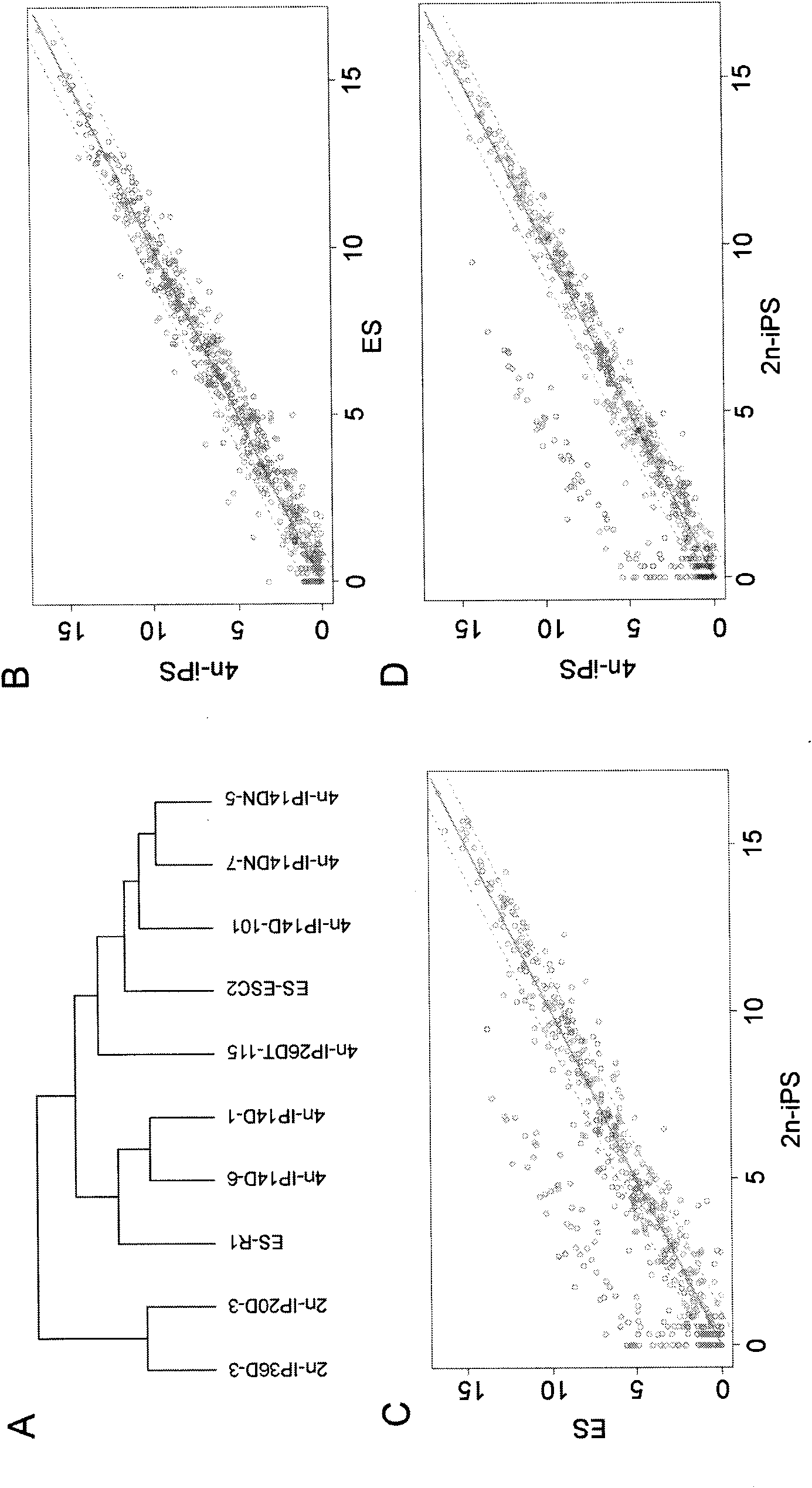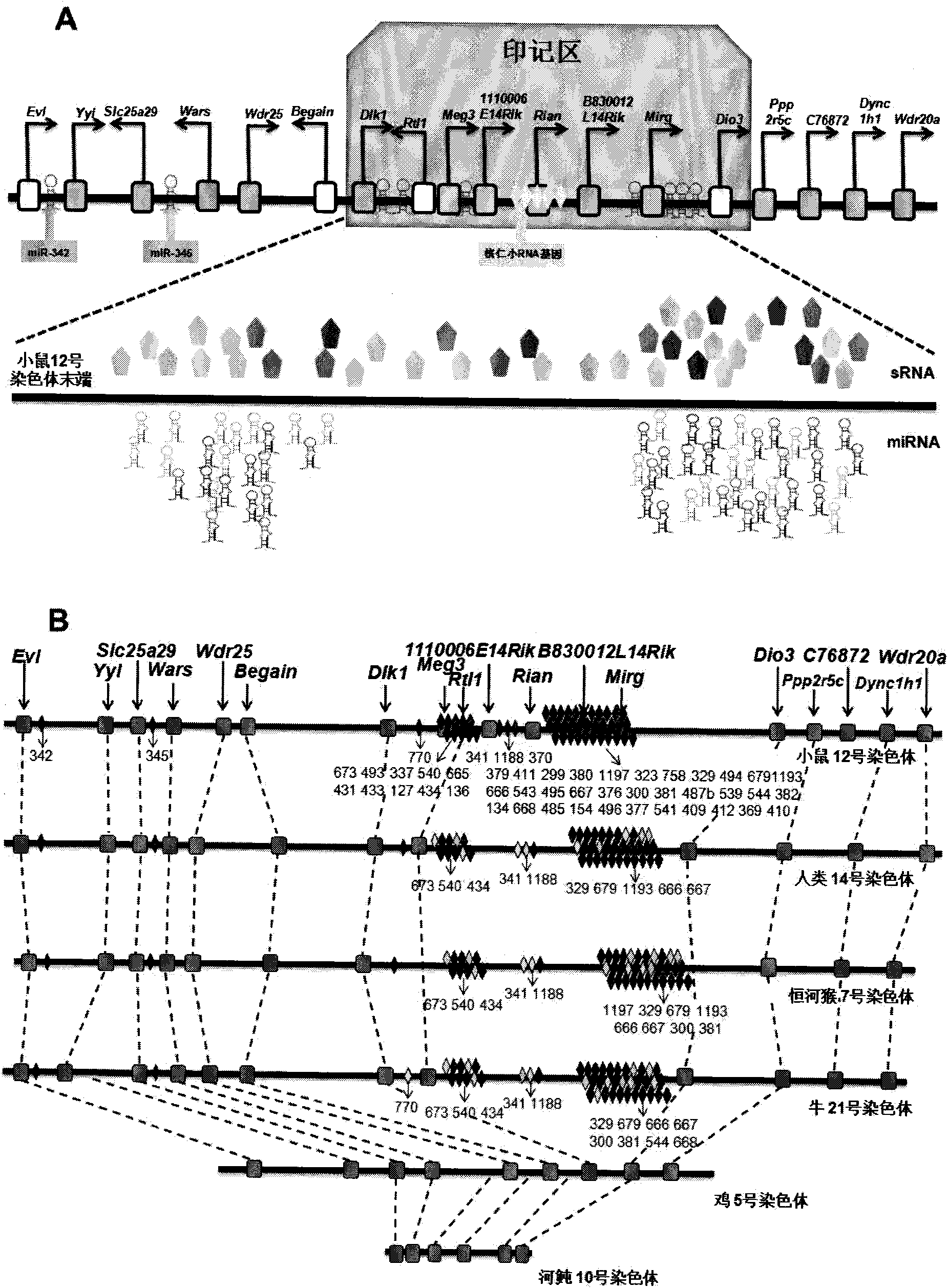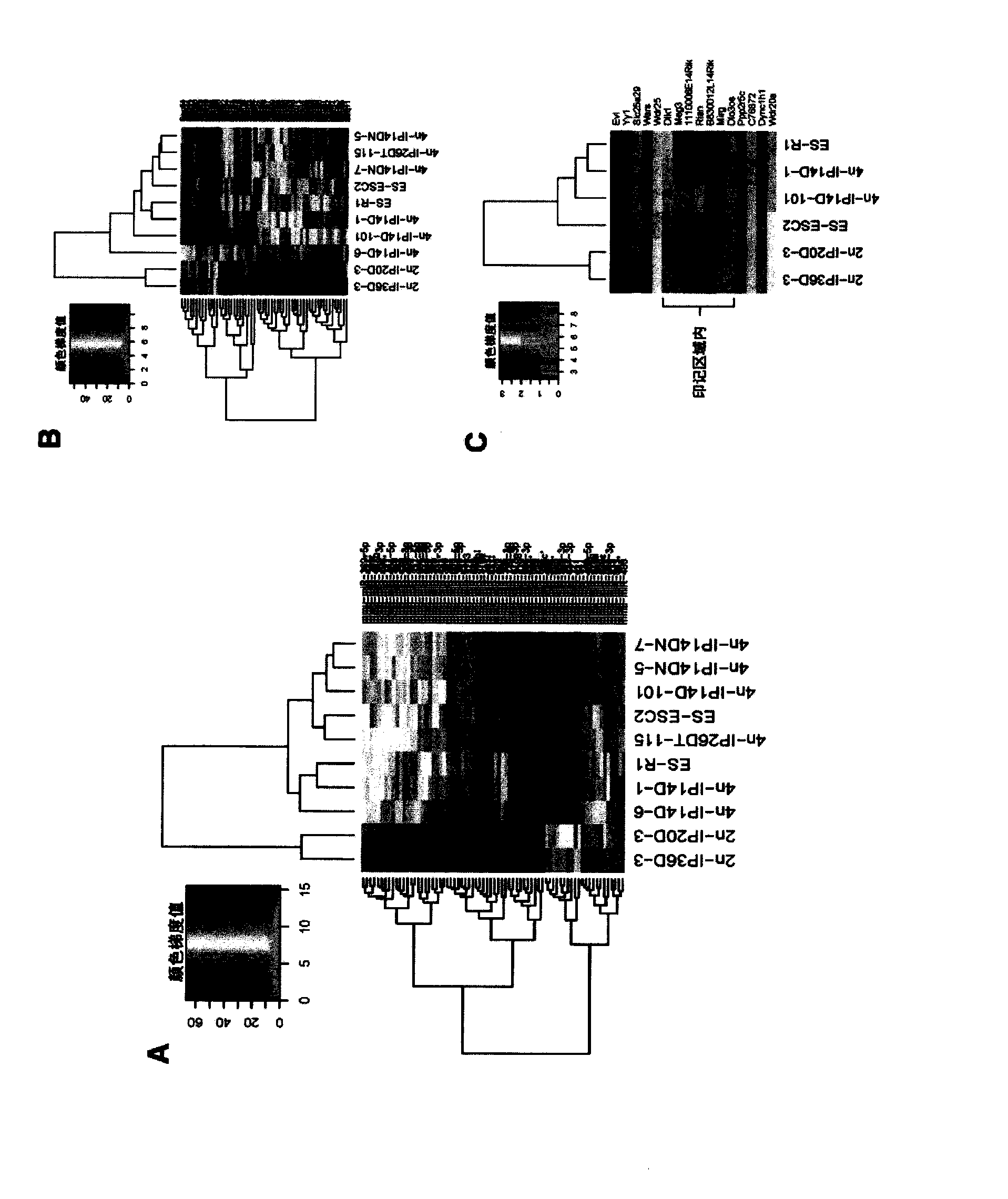Key genes, microRNAs and other non-coding RNAs or combination thereof used for identifying or regulating cell pluripotency
A non-coding, pluripotent technology, applied in the field of identifying or regulating key genes, microRNA, other non-coding RNAs or combinations thereof, which can solve the problem of inability to verify the pluripotency of human iPS cells, delay iPS Technology development and application, low success rate and other issues
- Summary
- Abstract
- Description
- Claims
- Application Information
AI Technical Summary
Problems solved by technology
Method used
Image
Examples
Embodiment Construction
[0023] The inventor's research is based on rigorous animal experiments, identifying and classifying embryonic stem cells and pluripotent stem cells with different developmental potentials, and tracing the differences between these pluripotent stem cells through large-scale Solexa sequencing and gene chip data, thereby It was found that genes, microRNAs and other non-coding RNAs located in the Dlk1-Dio3 segment were highly expressed in fully pluripotent cells with the highest developmental potential, but were significantly suppressed or silenced in incomplete pluripotent stem cells with lower developmental potential; through The results obtained by detecting this cluster of genes and non-coding small RNAs and then verifying pluripotency are also completely consistent with this conclusion. Thus, in mice, the expression of this cluster of genes is an important marker of stem cell pluripotency.
[0024] MicroRNA (miRNA) refers to a short chain of up to 22 nucleotides whose precurs...
PUM
 Login to View More
Login to View More Abstract
Description
Claims
Application Information
 Login to View More
Login to View More - R&D Engineer
- R&D Manager
- IP Professional
- Industry Leading Data Capabilities
- Powerful AI technology
- Patent DNA Extraction
Browse by: Latest US Patents, China's latest patents, Technical Efficacy Thesaurus, Application Domain, Technology Topic, Popular Technical Reports.
© 2024 PatSnap. All rights reserved.Legal|Privacy policy|Modern Slavery Act Transparency Statement|Sitemap|About US| Contact US: help@patsnap.com










